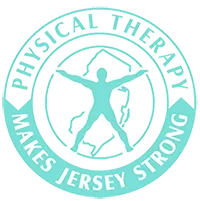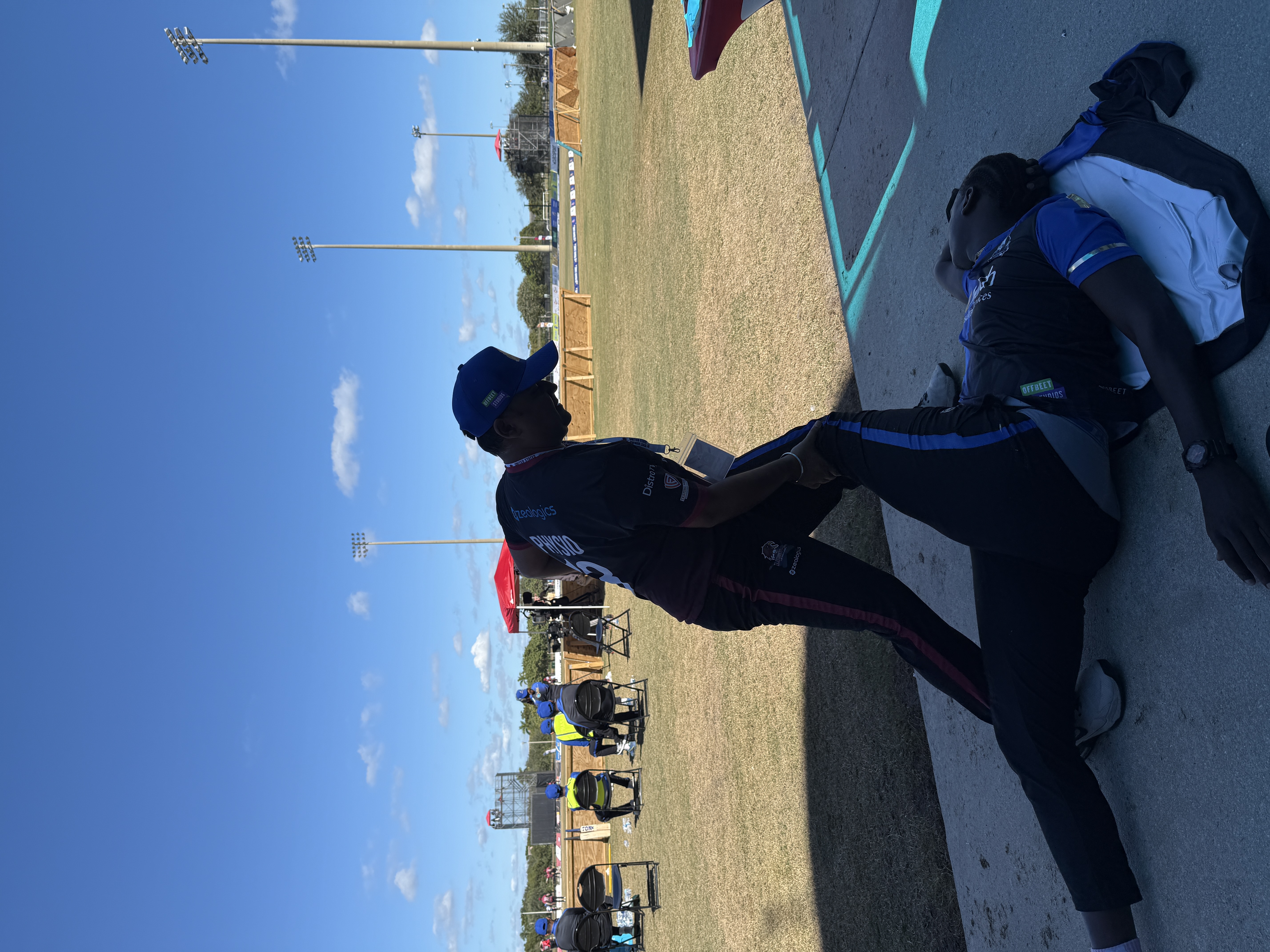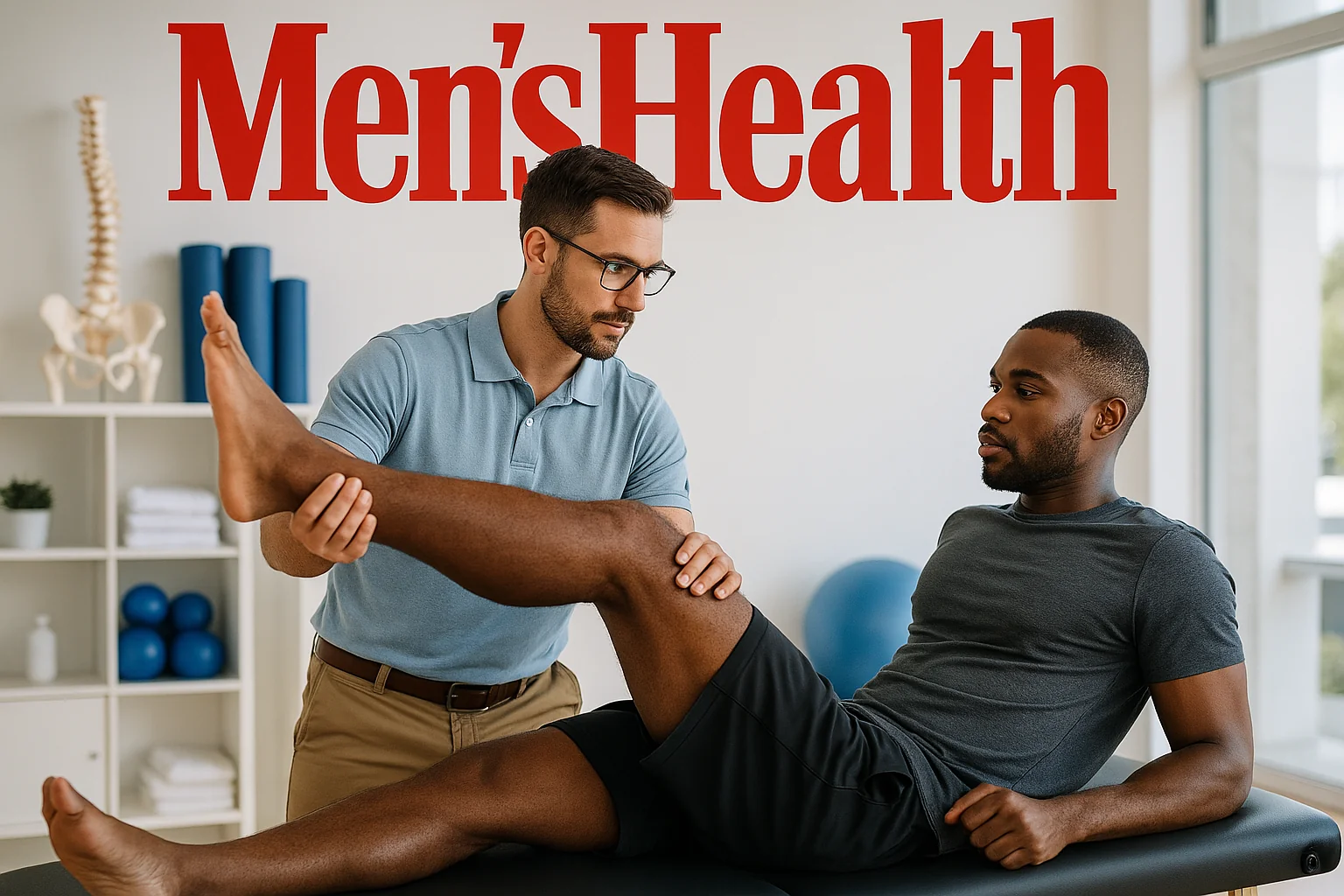New Jersey Rehab Experts
Specializing in comprehensive orthopedic care, New Jersey Rehab Experts offers a wide range of services including Physical Therapy, Sports Physical Therapy, Dry Needling, Chiropractic Care, Neuropathy Treatment, Pain Management, and Manual Therapy. Our state-of-the-art facility is staffed by board-certified therapists dedicated to delivering top-tier care, ensuring you achieve optimal recovery and wellness.
Clinic Located in Jersey City (Newport), Secaucus and Clifton
Genuine Feedback from
Our Patients
Our Affiliations






Explore Our Diverse Range of Disciplines
Discover a world of exceptional care customized for all ages! Our dedicated professionals deliver top-notch medical attention, expert rehabilitative therapy, and warm companion care for adults, seniors, and young patients. Experience personalized healthcare with a heart!

Orthopedic Physical Therapy
Specialized care for musculoskeletal injuries, surgeries, and chronic conditions affecting bones, joints, muscles, ligaments, and tendons.
- Sports injuries
- Arthritis management
- Post-surgical rehab

Geriatric Physical Therapy
Specialized care for older adults, addressing age-related changes affecting balance, strength, mobility, and independence.
- Fall prevention
- Balance training
- Mobility enhancement

Sports Physical Therapy
Specialized rehab for athletes of all levels, from weekend warriors to professionals, focusing on injury recovery and performance enhancement.
- ACL rehab
- Return-to-play testing
- Performance optimization

Vestibular Rehabilitation
Specialized therapy for dizziness, vertigo, and balance disorders stemming from inner ear and balance system dysfunction.
- BPPV treatment
- Balance retraining
- Dizziness management

Men's Health Physical Therapy
Specialized care for pelvic floor dysfunction and related issues, providing discreet, effective treatment for men's specific health needs.
- Pelvic pain relief
- Post-prostatectomy rehab
- Urinary dysfunction

Motor Vehicle & Work Injury Rehab
Specialized care for car accidents and workplace injuries, with expert documentation and coordination with insurance providers.
- Whiplash treatment
- Workers' comp cases
- Personal injury claims

Manual Therapy
Hands-on approach using specialized techniques to relieve pain, improve mobility, and accelerate healing naturally.
- Mulligan Mobilizations
- McKenzie Method
- Myofascial Release

Dry Needling
Modern technique using thin, sterile needles to target trigger points, releasing muscle tension and restoring normal function.
- Back & neck pain
- Headaches & migraines
- Sports injuries
Ready to start your recovery journey?
Our expert therapists are ready to help you live pain-free and regain your mobility.
Our Advantages
Specialized Programs for Every Need
From orthopedic rehab and sports therapy to vestibular, pelvic health, and post-injury recovery, we provide comprehensive, patient-focused solutions.
State-of-the-Art Techniques & Technology
We use cutting-edge treatments like dry needling, spinal manipulation, Mulligan & McKenzie techniques, Fit3D scans, Shockwave Therapy , Cupping and more to accelerate healing.
Personalized One-on-One Care
Every patient receives individualized treatment plans with hands-on attention to ensure faster recovery and long-term results.
Trusted by Athletes & Community Leaders
Official providers for multiple cricket teams and a member of respected healthcare associations—our reputation speaks for itself.
Multiple Convenient Locations Across NJ
With clinics in Jersey City, Secaucus, Clifton , and beyond, we’re always within reach—offering flexible scheduling and bilingual support.
Seamless Support for Injury Claims & Recovery
We coordinate care with attorneys, physicians, and insurers for patients recovering from motor vehicle or work-related injuries, ensuring smooth documentation and stress-free rehab.
Meet Our Team

Sunny Thakkar PT, MS ( Exercise Physiologist)
Physical Therapist

Ashish Sinha, PT, DPT
Physical Therapist

Dr. Rohit Farzala PT, DPT
Physical Therapist
About Us


Experience rapid rejuvenation as our specialist team harnesses the power of advanced healing tech to erase pain with ease. We dive deep into your world, assessing every piece of the puzzle—stress at work, life pressures, physical health, nutrition, genes, posture, and even emotional ties—crafting a tailor-made wellness blueprint that's as unique as you are. With our dedicated holistic touch, we don't just treat symptoms; we empower you to embrace a pain-free, harmonious life.
Ask a Question

Find the Best Shoulder Doctors Near You: Your Ultimate Guide to Pain Relief and Recovery
Find the Best Shoulder Doctors Near You: Your Ultimate Guide to Pain Relief and Recovery
Shoulder pain can be a frustrating obstacle to your daily life, impacting everything from work to leisure activities. Finding the right shoulder doctor is vital to achieving relief and recovery if you're struggling with discomfort or limited mobility. Navigating the healthcare landscape can be daunting, but our ultimate guide will help simplify the process. We’ll explore key factors to consider when searching for the best shoulder doctors near you, from specialized training to patient reviews. Armed with this information, you can make an informed decision tailored to your needs. Don’t let shoulder pain hold you back any longer—read on to empower yourself on the path to a pain-free life. Your journey to recovery begins with the right expert by your side!
Understanding Shoulder Pain: Causes and Symptoms
Shoulder pain can stem from a multitude of causes, ranging from acute injuries to chronic conditions. It is essential to understand the root of your discomfort to seek appropriate treatment. Common causes include rotator cuff injuries, bursitis, tendonitis, frozen shoulder, and arthritis. Each condition has distinct characteristics but can lead to similar symptoms such as pain, stiffness, and limited range of motion. Understanding your specific symptoms will help in identifying the right specialist and treatment options.
The symptoms of shoulder pain can vary in intensity and duration. Some individuals may experience sharp, shooting pain, while others endure a constant dull ache. Pain may worsen with specific movements or activities, such as lifting objects or reaching overhead. Additionally, shoulder pain might be accompanied by swelling, redness, or a sensation of instability. Recognizing these symptoms is crucial for effective communication with your healthcare provider.
Shoulder pain can significantly impact your quality of life, interfering with daily tasks and reducing overall functionality. Once effortless activities, like dressing or driving, can become challenging and painful. Furthermore, shoulder pain can affect sleep patterns, leading to fatigue and decreased well-being. By understanding the causes and symptoms, you can better convey your experience to a shoulder doctor, ensuring a more accurate diagnosis and tailored treatment plan.
The Importance of Choosing the Right Shoulder Doctor
Selecting the right shoulder doctor is a critical step in your journey to pain relief and recovery. An experienced and skilled specialist can provide an accurate diagnosis and recommend effective treatment options tailored to your condition. The right doctor will not only address the physical aspects of your shoulder pain but also consider your overall health and lifestyle. This holistic approach ensures a comprehensive treatment plan that promotes long-term recovery.
The expertise of your shoulder doctor plays a significant role in the success of your treatment. A specialist with advanced training and experience in shoulder conditions will have a deeper understanding of the complexities involved. They can identify subtle differences in symptoms and tailor their approach accordingly. This precision can lead to better outcomes, reducing the risk of complications and promoting faster recovery.
Moreover, a shoulder doctor who prioritizes patient-centered care can make a substantial difference in your experience. Effective communication, empathy, and a collaborative approach are vital qualities that foster trust and comfort. When you feel heard and understood, you are more likely to adhere to treatment plans and actively participate in your recovery. Choosing a doctor who values these principles will enhance your overall journey to pain relief and recovery.
Types of Shoulder Specialists: Orthopedic Surgeons, Physical Therapists, and More
When it comes to treating shoulder pain, several types of specialists can offer their expertise. Orthopedic surgeons are among the most common professionals in this field. They specialize in diagnosing and treating musculoskeletal conditions, including shoulder injuries and disorders. Orthopedic surgeons can perform surgical procedures if necessary, providing advanced solutions for severe cases. Their extensive training and experience make them a valuable resource for comprehensive shoulder care.
Physical therapists play a crucial role in the non-surgical treatment of shoulder pain. They focus on rehabilitation and recovery through tailored exercise programs and manual therapy techniques. Physical therapists work collaboratively with patients to improve strength, flexibility, and function. They provide education on proper body mechanics and strategies to prevent future injuries. For many individuals, physical therapy is an essential component of a successful shoulder pain management plan.
Other shoulder specialists include sports medicine doctors, rheumatologists, and pain management specialists. Sports medicine doctors are skilled in treating injuries related to physical activity and can offer specialized care for athletes. Rheumatologists diagnose and manage inflammatory conditions that affect the joints, including the shoulder. Pain management specialists focus on alleviating chronic pain through various interventions, such as medication and injections. Each type of specialist brings unique expertise to the table, ensuring a comprehensive approach to shoulder pain treatment.
How to Research and Evaluate Shoulder Doctors
Researching and evaluating shoulder doctors is a crucial step in finding the right specialist for your needs. Start by gathering recommendations from trusted sources, such as your primary care physician, family, and friends. Online resources, including medical directories and review platforms, can also provide valuable insights. Look for doctors with extensive experience and specialized training in shoulder conditions. Consider their professional affiliations, certifications, and contributions to the field.
Once you have a list of potential shoulder doctors, delve deeper into their qualifications and track record. Review their educational background, residency training, and any fellowship programs they have completed. These credentials indicate a higher level of expertise and dedication to their specialty. Additionally, investigate their involvement in research and continuing education. Doctors who stay updated on the latest advancements are more likely to offer innovative and effective treatments.
Patient reviews and testimonials are invaluable resources for evaluating shoulder doctors. These firsthand accounts offer a glimpse into the experiences of others who have undergone treatment with the doctor. Look for patterns in feedback regarding communication, bedside manner, and overall satisfaction. Positive reviews can reinforce your confidence in a doctor, while negative ones may prompt further investigation. Balancing these insights with clinical qualifications ensures a well-rounded evaluation.
Questions to Ask During Your Initial Consultation
Your initial consultation with a shoulder doctor is an opportunity to gather essential information and assess their suitability for your needs. Prepare a list of questions to ensure a comprehensive discussion. Start by asking about their experience with shoulder conditions similar to yours. Inquire about their success rates and any specific challenges they have encountered. A doctor who provides detailed and transparent answers demonstrates confidence and expertise.
Ask about the diagnostic process and the tools they use to evaluate shoulder pain. Understanding the steps involved in reaching a diagnosis can help you anticipate what to expect. Inquire about imaging techniques, physical examinations, and any additional tests that may be required. A thorough diagnostic approach is crucial for accurate identification of the underlying issue and effective treatment planning.
Discuss potential treatment options and their associated risks and benefits. Ask about non-surgical interventions, such as physical therapy and medication, as well as surgical procedures if applicable. Understanding the pros and cons of each option allows you to make informed decisions. Additionally, inquire about the expected timeline for recovery and any necessary follow-up care. Clear communication regarding treatment plans and outcomes fosters trust and confidence in your shoulder doctor.
Treatment Options for Shoulder Pain: What to Expect
Treatment options for shoulder pain vary depending on the underlying cause and severity of the condition. Non-surgical interventions are often the first line of defense. Physical therapy is a cornerstone of shoulder pain management, focusing on strengthening and stabilizing the shoulder joint. Therapists employ exercises, stretches, and manual techniques to improve flexibility and reduce pain. Physical therapy can be highly effective in restoring function and preventing future injuries.
Medication is another common treatment option for managing shoulder pain. Over-the-counter pain relievers, such as ibuprofen and acetaminophen, can provide temporary relief. In some cases, prescription medications may be necessary to address more severe pain or inflammation. These may include muscle relaxants, corticosteroids, or anti-inflammatory drugs. Your shoulder doctor will consider your medical history and specific symptoms to determine the most appropriate medication.
For more persistent or severe cases, surgical intervention may be required. Shoulder surgery can address structural issues, such as rotator cuff tears, labral tears, or joint instability. Common procedures include arthroscopy, where small incisions are made to insert a camera and surgical tools, and open surgery for more complex repairs. Post-surgical rehabilitation is crucial for optimal recovery, involving physical therapy and gradual reintroduction of activities.
Patient Reviews and Testimonials: Why They Matter
Patient reviews and testimonials are valuable resources when evaluating shoulder doctors. These firsthand accounts provide insight into the experiences of others who have undergone treatment with the doctor. Positive reviews often highlight the doctor's expertise, communication skills, and overall satisfaction with the care received. These reviews can reinforce your confidence in a doctor's abilities and approach.
Negative reviews, on the other hand, may raise concerns and prompt further investigation. Look for recurring themes in feedback, such as issues with communication, long wait times, or dissatisfaction with treatment outcomes. While no doctor is immune to occasional negative feedback, consistent patterns may indicate underlying issues. Balancing positive and negative reviews allows for a more comprehensive evaluation.
Testimonials can also shed light on the emotional and personal aspects of the patient-doctor relationship. Patients often share their journey, including challenges and successes, providing a deeper understanding of what to expect. These stories can offer reassurance and motivation, reinforcing the importance of finding the right shoulder doctor. Ultimately, patient reviews and testimonials contribute to a well-rounded assessment, guiding your decision-making process.
Insurance and Payment Options for Shoulder Treatments
Navigating insurance and payment options for shoulder treatments is an essential aspect of your healthcare journey. Before selecting a shoulder doctor, verify their acceptance of your insurance plan. Contact your insurance provider to understand your coverage for consultations, diagnostic tests, and treatment procedures. Knowing your benefits upfront prevents unexpected financial burdens and ensures a smoother experience.
Discuss payment options with your shoulder doctor during your initial consultation. Inquire about the costs associated with various treatments, including non-surgical interventions and surgical procedures. Understanding the financial aspect of your treatment plan allows you to budget accordingly and explore potential payment arrangements. Some doctors offer payment plans or financing options to ease the financial strain.
Consider additional resources, such as medical savings accounts (MSAs) or flexible spending accounts (FSAs), which can help cover healthcare expenses. These accounts allow you to set aside pre-tax dollars for medical costs, reducing your out-of-pocket expenses. Exploring all available options ensures that you can access the necessary care without compromising your financial stability.
Tips for Preparing for Your Appointment with a Shoulder Doctor
Preparing for your appointment with a shoulder doctor is crucial for a productive and informative consultation. Start by gathering relevant medical records, including previous imaging studies, test results, and a list of current medications. These documents provide valuable context for your doctor and facilitate a more accurate diagnosis. Additionally, jot down your symptoms, including their onset, duration, and any factors that exacerbate or alleviate them.
Create a list of questions and concerns to discuss during your appointment. This ensures that you address all aspects of your condition and treatment options. Consider asking about the diagnostic process, potential treatments, and expected outcomes. Clear communication with your shoulder doctor is essential for understanding your condition and making informed decisions. Having a prepared list prevents overlooking important details during the consultation.
Bring a support person, such as a family member or friend, to your appointment. They can offer emotional support and assist in remembering information discussed during the consultation. A second set of ears can be invaluable for comprehending complex medical explanations and treatment plans. Additionally, having someone accompany you can provide comfort and reassurance during the appointment.
Conclusion: Taking the Next Steps Towards Pain Relief and Recovery
Shoulder pain can be a significant impediment to your daily life, but finding the right shoulder doctor is a pivotal step towards relief and recovery. By understanding the causes and symptoms of shoulder pain, you can effectively communicate your experience and seek appropriate treatment. Choosing the right specialist involves evaluating their qualifications, patient reviews, and treatment options. Your initial consultation is an opportunity to gather essential information and assess their suitability for your needs.
Exploring various treatment options, from non-surgical interventions to surgical procedures, allows you to make informed decisions about your care. Patient reviews and testimonials provide valuable insights into the experiences of others, guiding your evaluation process. Navigating insurance and payment options ensures a smoother healthcare journey, preventing unexpected financial burdens. Preparing for your appointment with a shoulder doctor ensures a productive and informative consultation.
Taking the next steps towards pain relief and recovery involves a comprehensive approach to finding the right shoulder doctor and treatment plan. Empower yourself with knowledge and confidence, and embark on your journey to a pain-free life. With the right expert by your side, you can overcome the challenges of shoulder pain and regain your quality of life. Don’t let shoulder pain hold you back any longer—take charge of your health and start your path to recovery today!
No matter whether your condition was caused by a sport, work accident or otherwise,
we welcome the chance to serve you.
Opening Hours





